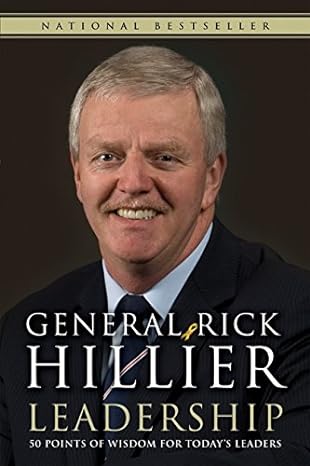NEWS Center
The Mission: How West Point’s Historic Thayer Hotel Was SavedTuesday, May 21, 2019
By the time Rick Minicozzi heard about the problems at the Thayer Hotel—civilian gateway to the United States Military Academy at West Point—it was almost too late. Operated and run by the government from 1926 until 1999, when it was privatized, the hotel was in existential financial distress in the wake of the global financial crisis, an aging, tattered embarrassment to the nation.
It was also, Minicozzi learned, in need of immediate mezzanine financing in order to cover $20 million in debt. Was Minicozzi, an Austin-based real estate developer and 1986 West Point graduate and Desert Storm combat veteran, ready to jump in? “Yes,” he said, sight unseen. “It was a no-brainer.” He did the deal on a handshake.
That decision, taken with a sense of duty to the institution that shaped him and done with trust in his fellow alumni—would change the trajectory of his life and those of his fellow investors and West Pointers Bill Murdy (USMA 1964) and Timothy Tyson (USMA 1974). It would set them on a mission to rebuild The Thayer—and ultimately to develop a new kind of executive education, one based on West Point’s 200-plus-year-old method for creating leaders of character.
“We were committed as a group of graduates to return the hotel to its once distinguished position,” says Tyson, who Minicozzi and Murdy later recruited into the deal, “and to give back to West Point, knowing that we might lose money but willing to commit to that as graduates, hoping that with the business minds around the table we could figure a way to make a profitable go of it and turn it around. We all know that West Point is the most inspirational place on earth, we just had to find a way to show the world—and the business would follow.”
Easier said then done. A Canadian bank was threatening to foreclose on an overdue note. Murdy, Minicozzi and another partner, Fred Malek (USMA 1959), personally covered the debt. Then they bought back all the outstanding stock at a 5x valuation to infuse more capital and give the hotel the operating cash it needed. They fired the ineffective management company, and Minicozzi took over as CEO, commuting from Austin and living in the hotel part of each month to oversee renovations. They brought in a board of governors—roping in Tyson along the way—and raised an additional $2.3 million from other West Pointers.
Ten years, many sleepless nights and many millions of dollars in capital improvements later, they’ve largely succeeded in turning things around. The Thayer is now a luxury, 151-room destination in the heart of New York’s spectacular Hudson River Valley, with robust cash flow and renewed vibrancy. The goal of being a world-class conference and leader development center is coming to fruition. Thayer is one of only eight New York hotels to meet the rigorous standards required to be admitted into the prestigious International Association of Conference Centers, and it was ranked #3 hotel in the Mid-Atlantic by Conde Nast Traveller. It is also home to the Thayer Leader Development Group (TLDG), an innovative leadership institute led by an elite faculty of former Army officers—many of whom taught at West Point while in uniform—who work to infuse civilian business executives with military experiences and techniques developed over centuries.
TLDG was born of necessity. The Thayer, the new owners discovered, was in financial trouble for a reason. Located more than 50 miles north of New York City, it had no problems filling rooms on weekends. Weekdays were a different story. Monday to Thursday, the hotel was empty, and cash flow was nonexistent.
The answer was tapping West Point’s strength as the premier leadership development institution and brand in the world. In 2010, they launched TLDG, recruiting a who’s who of retired high-ranking officers as faculty, including General Dennis Reimer, Brigadier General Becky Halstead, Lieutenant General Frank Kearney, Colonel Sean Hannah, Colonel Pilar McDermott and dozens of others, each with specific expertise in their respective leadership fields.
“They’re practitioners of the content they deliver. They’re not just academia,” says Minicozzi. “They’re not just people who are theorizing stuff. They’ve actually done what they’re talking about.”
They also recruited from the best of the civilian world, luring Dr. Karen Kuhla McClone, Ph.D. from General Electric’s legendary Crotonville corporate university to develop the TLDG curriculum. “It’s a high-touch kind of way to work with clients,” says Murdy. “And she’s somehow figured out a way to scale that.”
Over the next few years, a growing roster of clients like 7-Eleven, Deloitte, Morgan Stanley, Wyndham and Pratt & Whitney discovered—to their surprise—that the Army way of doing things was extremely effective in this volatile, uncertain era of disruption in business. TLDG was ranked as one of the top 40 leader development companies in the world by Training Industry—for the third year in a row—and conducts programs in Europe, Asia and across the U.S.

TLDG Founders: President Dan Rice, CEO Rick Minicozzi, Chairmain Bill Murdy, Executive Director Dr. Karen Kuhla McClone, Ph.D., and Vice Chairman Timothy Tyson.
“There’s a perception about the military that it’s very hierarchal and in order for someone to do something, they have to go up seven levels in order to get permission,” says Minicozzi. “But it’s actually the opposite of that. The Army teaches empowerment and pushing down authority. We’ve taken many of these processes and created a unique model that resonates with senior executives and is qualitatively and quantitatively proven to work. Many of our clients engage us to help create cultural change in their organizations of all sizes.”
Even basic Army practices like after-action reports and “red-teaming”—role-playing how rivals will act in reaction to your strategies—are revolutionary in corporate settings, says Murdy, who, after serving two tours in Vietnam, graduated from Harvard Business School and spent decades as a CEO and public company director. “When I got into a position of leadership in building a business and started introducing those things, I was flabbergasted that people didn’t do that,” he says. “I thought everybody did that already. And it truly does make a difference.”
More than anything else, TLDG prides itself on developing the “whole” leader, based on West Point’s character-based, ethics-based training. How do you teach character? “By example, mostly,” says Murdy. “The one thing our faculty have that is unique is that they had experiences where they’ve been leaders under extreme duress, leaders who had to build trust or make incredibly difficult decisions. There are principles that we use to teach leadership to senior executives who are experienced and educated leaders. Our programs are part classroom, part experiential and part pure storytelling that has a lasting impact.”
Clients come away impressed. “TLDG has had a profound, transformational impact on our firm,” said Doug Sieg, Managing Partner of the financial firm Lord Abbett. “The incredible character and knowledge of the faculty and ownership; the awe-inspiring location of the Thayer Hotel; and the world-class curriculum are second to none.”
That’s the mission. “There has been a need for what West Point’s basic premise is, and that’s building leaders of character for a selfless service to our nation,” says Tyson. “We thought we could help to educate and catalyze the business community with an understanding that you want to build leaders of character for a selfless service to your organization, and it has been incredibly well received.”
“There’s a thing about West Pointers,” he adds. “We do not accept failure. So we always know that we can depend on each other to keep fighting until the end to find a way.” Ten years later, The Historic Thayer Hotel is once again worthy of West Point and our nation.

"Most important things leaders do: 1) accomplish the mission 2) take care of their people"
Colonel James M. Johnson, Ph.D.,(USA, Retired, USMA 1969)
More +
More +





